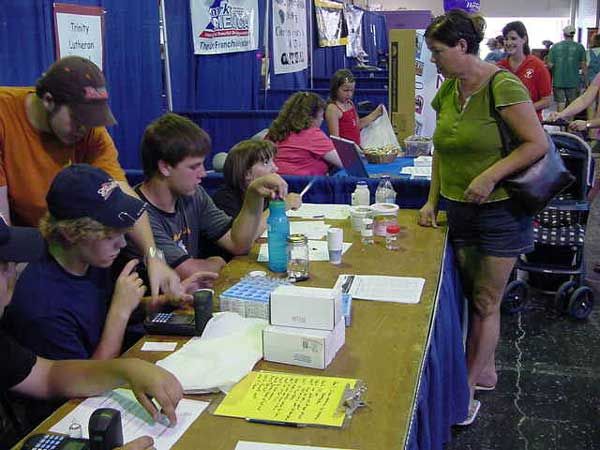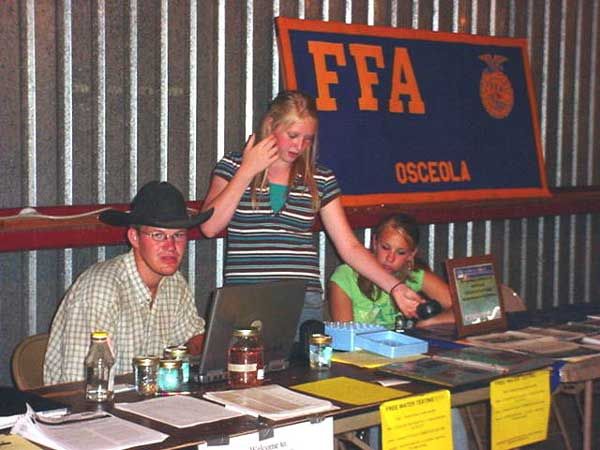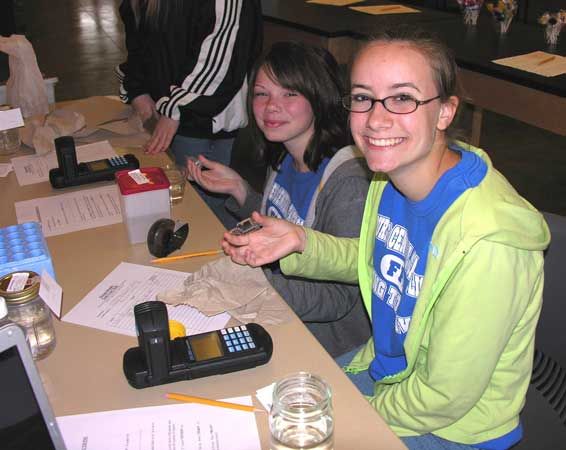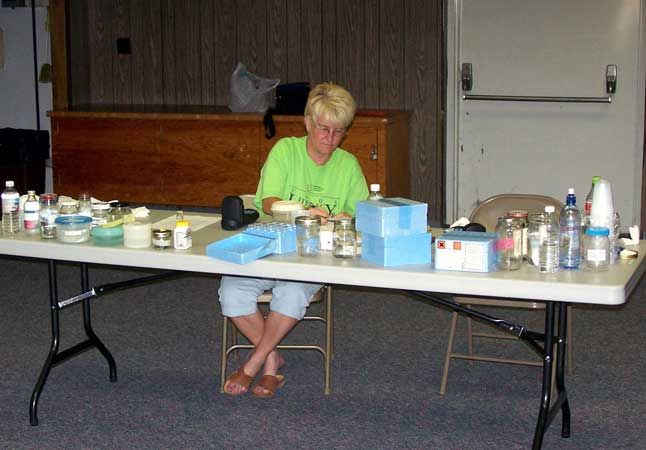Test Your Well
Water samples arrive in water bottles, mayonnaise and baby food jars, aspirin bottles, and Tupperware containers at venues such as school gymnasiums, community centers, and county fair booths. Samples are marked, sorted, shaken, tested and returned. Is this a makeshift laboratory?
In some ways, yes. It’s part of a popular activity in the US that enables private well owners to "Test Your Well." Test Your Well events invite private well owners to bring a sample of their well water to be tested for the presence of nitrates and other contaminants at no charge. Events are often held in the evening, a Saturday morning, or combined with another event such as a county or community fair. Students, Groundwater Guardian team members, and other volunteers administer the tests using a colorimeter or similar testing equipment.
Innovative Approach
The Test Your Well concept utilizes students, community organizations and other volunteer groups to offer a valuable service in a non-threatening atmosphere. The events offer teachable moment for well owners. They learn about non-point source contamination, receive information about water quality and pollution prevention, and have the opportunity to ask questions while their water is tested.
Those conducting the event also benefit. They learn about the importance of environmental health, better understand their role in safeguarding drinking water quality, and have a raised awareness about drinking water that can be passed on in their communities.
Start Planning Your Event
If your community is interested in holding a Test Your Well event, there are a few things you will need. First, a group of students or volunteers to run the event. Next, a location. Schools are popular venues, but events are also held at community centers, fairs, or VFW halls. You will also need appropriate testing equipment and reagent (a substance which triggers a chemical reaction to gauge the nitrate level). Colorimeters can often be borrowed from a local health department, laboratory, or other group involved in water quality. It’s also a good idea to have handouts and pollution prevention materials available for well owners to take with them. Some groups ask local businesses for sponsorship to help in the purchase of reagent, advertising, refreshments, etc.
-
Download basic instructions and tips on how to get a Test Your Well event started in your community.
-
Test Your Well: A Manual for Safe Water Today Through Pollution Prevention Tomorrow. Includes event suggestions, tips, success stories, and a CD-ROM with editable forms and other support documents. Available through our online catalog.
-
Find out more about the importance of regular well testing.
-
With questions or for more information!





